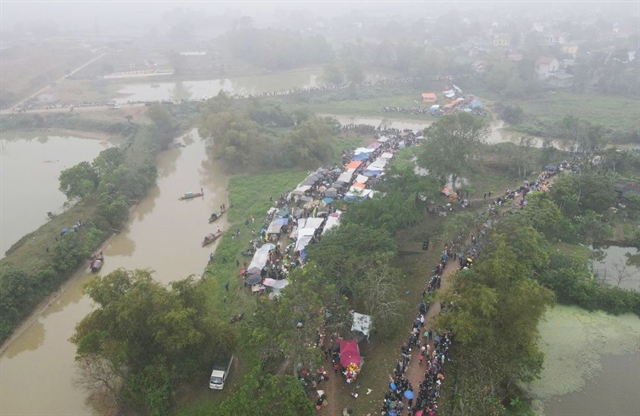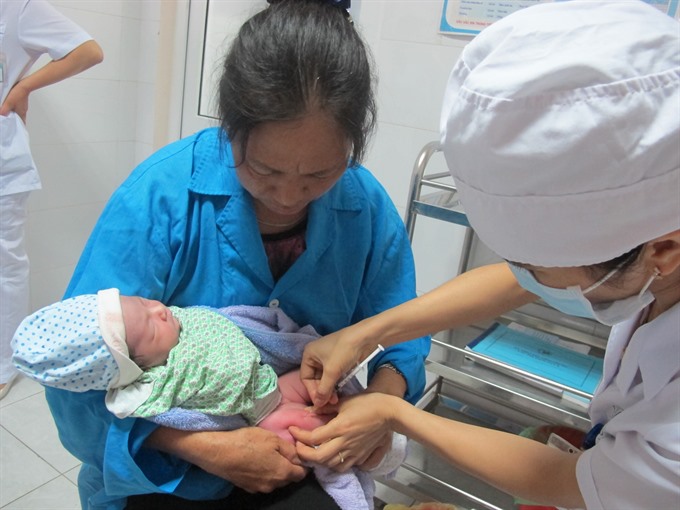 Society
Society

Nine out of every 100 Vietnamese people have contracted hepatitis B and between one and four people have been infected with hepatitis C. However, no estimate of the impact of the diseases has been done so far, a conference heard this morning.
 |
| A newborn gets the first shot of the hepatitis B vaccine at Đức Giang General Hospital. – Phototiemchungmorong.vn |
HÀ NỘI – Nine out of every 100 Vietnamese people have contracted hepatitis B and between one and four people have been infected with hepatitis C. However, no estimate of the impact of the diseases has been done so far, a conference heard today’s morning.
At a conference held today on results of estimating the impact of hepatitis B and C, Deputy Minister of Health Nguyễn Thanh Long said hepatitis B and C were known as the silent killers. The diseases had caused the deaths of 1.34 million people globally, higher than the number of HIV/AIDS-related deaths.
In Việt Nam, more than 7.8 million people had contracted hepatitis B and nearly one million were infected with hepatitis C this year. The number of newly-infected patients is expected to increase in the coming years.
PhD Nguyễn Văn Kính, director of the National Hospital of Tropical Diseases, said each month, the department of hepatitis received between 200 and 250 patients, of which some 20-25 patients were in serious condition.
Kính said hepatitis B mainly spread from mother to child. Up to 65 per cent of infected children at the hospital had mothers who were infected with the virus.
Although vaccination against hepatitis B for newborns was taking place extensively, it had not been effective enough, Kính said.
The rate of vaccination against hepatitis B among newborns remained low. Last year, only 68 per cent of total newborns were vaccinated. This percentage was reported to be under 20 per cent in some certain areas.
This was because some hospitals had not seriously implemented the vaccination programme and some parents had refused to have their kids vaccinated as they feared a reaction to the injection.
In addition, the vaccination could only take place at hospitals. Local health clinics did not have the required medical equipment to store the vaccins properly. As a result, babies born at home or in mountainous and disadvantaged areas were unable to get vaccinated.
Deputy Minister of Health Long said the impact of the diseases was quite significant as thousands of patients had reportedly died of the two diseases.
Long asked health experts and delegates to focus on evaluating hepatitis B and C infections in Việt Nam and estimate the impact of the diseases to warn people and boost the rate of vaccination in the community.
The representative of the World Health Organisation in Việt Nam said it was necessary to invest in testing and treatment of hepatitis B and C. This would help save more lives, reduce newly-infected cases and reduce the cost of treatment in the future. – VNS




